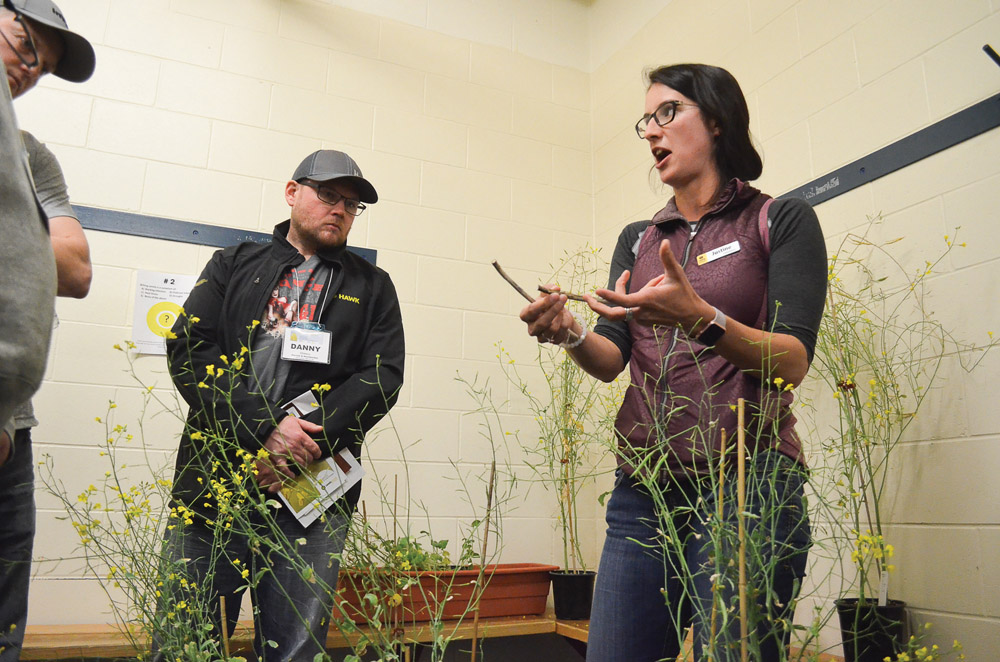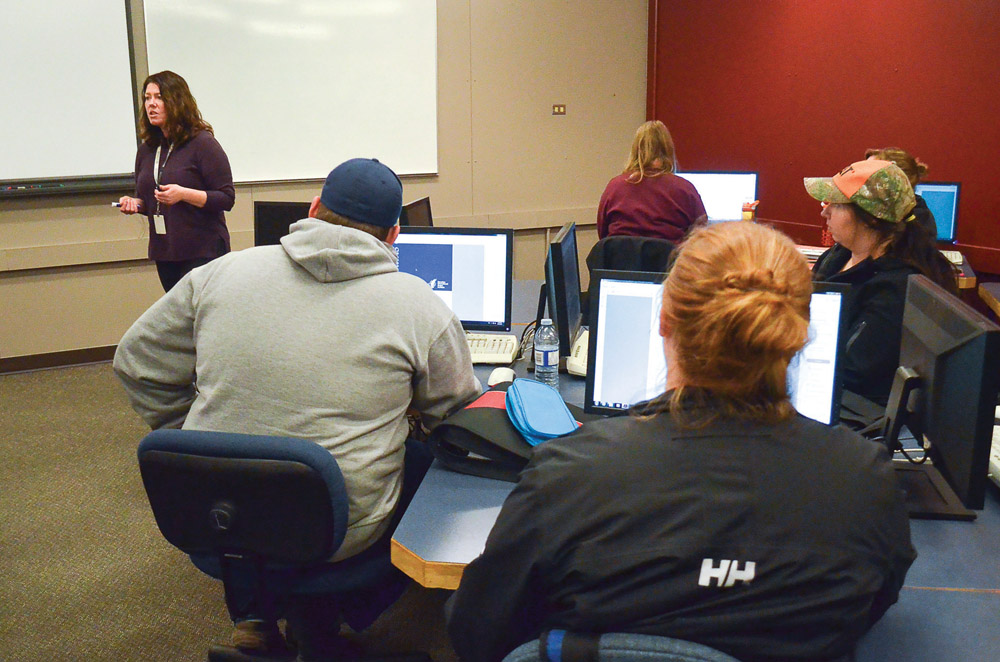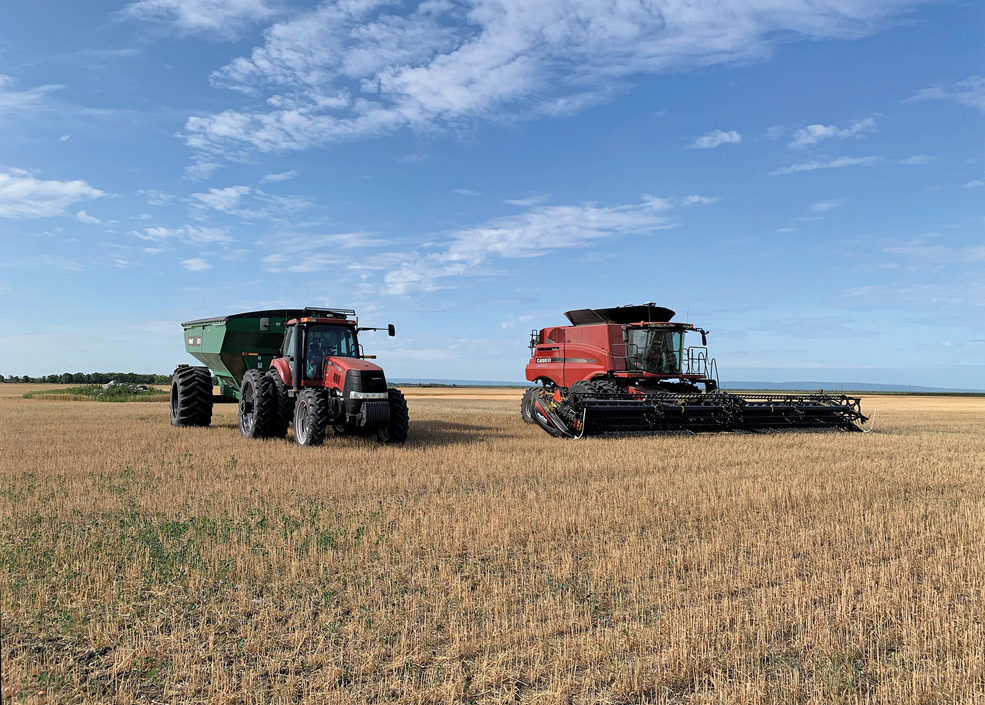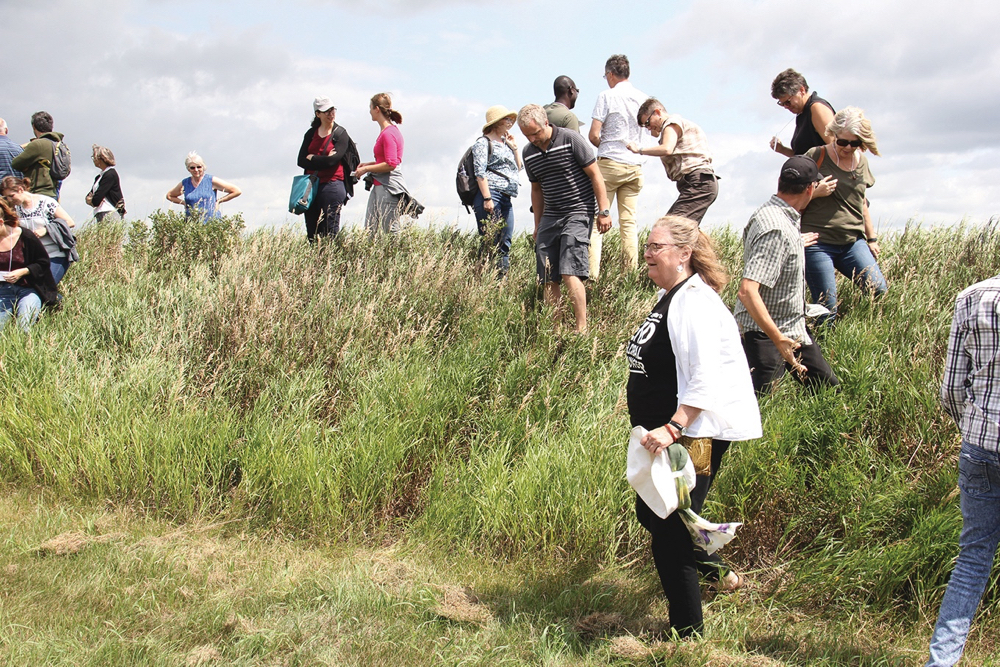Amanda Boland’s parents don’t farm, but that didn’t stop agriculture from being a part of her childhood.
The daughter of two ag retailers in Melfort, Sask., Boland was exposed early to the industry, eventually joining the workforce at Paragon Ag Services, the same company that employs her parents. She loaded and unloaded fertilizer trucks and blended product, before making her way out into the field as a crop scout and chemical salesperson in her own right.
It was, she decided, the industry she wanted to make her career in.
“My dad would take me out to the fields with him and it’s just something that I grew up around and I really enjoy doing, so then I started working at the ag retail and I realized I just loved it and I wanted to get into it,” she said.
Boland is now one of dozens of students enrolled in the agribusiness program at Assiniboine Community College (ACC) in Brandon, having been drawn away from the University of Saskatchewan by the promise of small class sizes and hands-on learning that ACC’s two-year agribusiness diploma has made a name for itself with.

The program has marketed itself as a means of “bigger picture” training, extending past the science and agronomy of agriculture — although those feature too — to include courses in finances, business planning, customer service, sales, management, geographic information systems (GIS) and communications.
Those looking for agriculture education in Manitoba have only a few options. There is the University of Manitoba, with an agriculture program as old as the university itself. There is Providence University College, a faith-based institution that draws programming through the University of Manitoba. West of the perimeter, however, ACC is the only option for specific agriculture programming.
Business focus
Rick Gray, chair of ACC’s program said they focus on both primary agriculture and the related industries, with a business focus.

“That means that our students take courses in things like accounting and marketing principles, sales and advertising, as well as all the more traditional farming-type courses: crop production, weed management, livestock and so on,” Gray said.
For Simon Ellis, a 2013 agribusiness graduate now looking to take over Ellis Seeds in Wawanesa, the program was close to home and the agriculture department impressed him when he visited the ACC campus prior to enrolling.
“I was quite impressed with the facilities and, talking to the instructors, they seemed extremely nice and knowledgeable and I just thought it was a great fit and when I graduated I was very pleased that I chose to go there,” he said.
Established in 1991, the agribusiness program began as a five-month certificate and graduated 14 students, a far cry from the current two-year diploma. The program now runs on a standard scholastic schedule, from September to April, and expects 54 students to walk through its doors come fall 2017.
Read Also

Students push for Manitoba road upgrades
Manitoba’s lack of higher-rated RTAC roads creates irritating highway detours and weight restrictions for farmers, University of Manitoba students told KAP.
The continuing increase has put enrolment pressures on the program, which has a 20-name waiting list, Gray said, enough that a third cohort is being considered, should resources allow. On top of that existing pressure, there is demand from international students to join the program, although current policy prioritizes domestic applicants.
Faculty is largely split between the agribusiness and environmental technologies program, with seven total instructors and two solely devoted to agribusiness.
Smaller works
That’s significantly smaller than the programs at places like the University of Manitoba, but that can be an advantage too.
“I think because we are a smaller school, we get to take the students outside of these walls a lot and get them exposed to various farming scenarios, but not just farming scenarios, because we also have our land and water management, or environmental technologies diploma that runs here as well,” faculty member Danielle Tichit said. “They get to work together a fair bit to look at environmental stewardship within the agriculture system and those sorts of things to get an appreciation of that kind of ‘whole farm’ approach.”
Students spend at least eight days of their first semester in the field, Tichit said. By the end of December, they will have visited local farms and the Brandon Hills, explored soil and cropping systems and identified weeds in real-world environments.
By the end of the program, students may have travelled to Yellow Quill Prairie Preserve south of Douglas, Man., to study native forages and rotational grazing or to conferences, such as this year’s CanoLAB canola workshop in Dauphin. They will have examined the impact of wetlands training events in Winnipeg.
“In our crop management course, we got to do some hands-on learning with some of the weeds and actually get to grow some of the crops themselves,” Ellis said.
High tech
Technology, an area that has seen almost unrecognizable change since the program was founded in 1991, has also taken greater root. The diploma now includes courses on precision agriculture, with its higher technological complexity, data-intensive basis and implications for both yield and sustainable farming. Mobile technology and social media are introduced as management tools. Most recently, Gray said, the program has been asked to consult with a college from Kenya on the use of drones in agriculture.
Part of that technological growth has been driven by the environmental technologies program and the expertise of its faculty, he said.
Tichit agrees, saying the technology piece is becoming more commonplace throughout a number of the college’s courses, including ag equipment, crop production and the use of drones for field scouting in integrated crop management.
“We are now pulling in threads of those technology pieces into a number of the different courses… looking at the different apps that producers have available to them and getting the students feeling a little bit more comfortable with that type of technology,” Tichit said.
Employment focus
The bottom line for the program isn’t just knowledge — it’s also how many graduates find work afterwards.
In this case the rate is near 100 per cent, with campus job postings, streamlined summer work placements and professional networking opportunities all paving the way.
“We have a career fair here in the fall where a lot of the students meet with industry and then industry will actually come back and interview the ones they like… right here on campus,” Gray said.
Most students have secured summer or permanent employment by Christmas, he said.
About a quarter of their graduates return to the family farm after leaving ACC, Tichit said. Others have gone into equipment sales, human resources, work with agencies such as Farm Credit Canada or the Manitoba Agricultural Services Corporation, travelled internationally for farm work, or found work with non-agriculture companies such as CIBC that have some interests in the sector.
Boland will be among those who will accept her diploma this spring with a job already in hand.
Since entering the program two years ago, she has added business planning and accounting to her existing ag retail experience, something she admits she was largely unfamiliar with before the agribusiness program, and has another stint at Paragon Ag Services under her belt after spending her summer there last year for a work placement.
She has expanded a professional network and it was those contacts, through a classmate, that helped her secure a job straight after graduation.
“I think it’s a great program,” she said. “I think anybody who loves ag should really come here.”
















